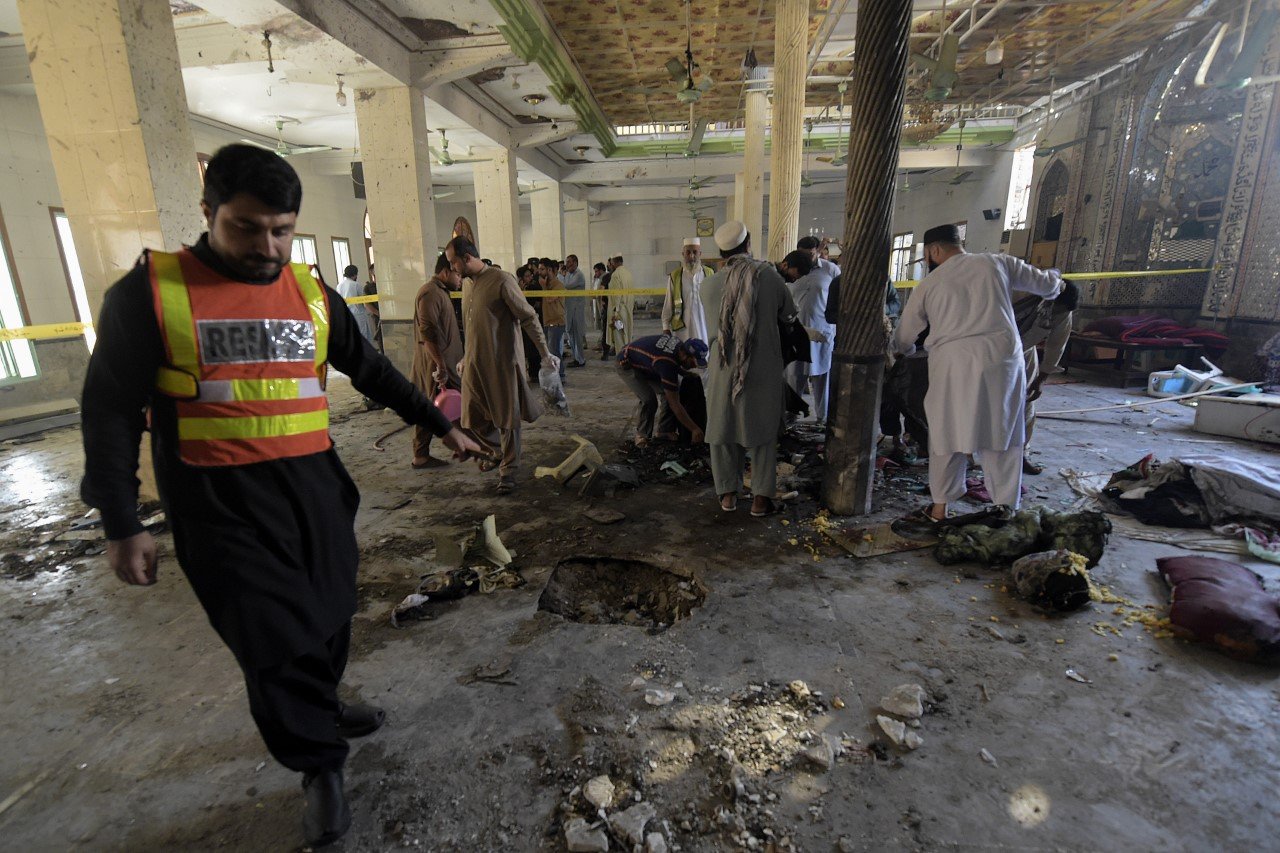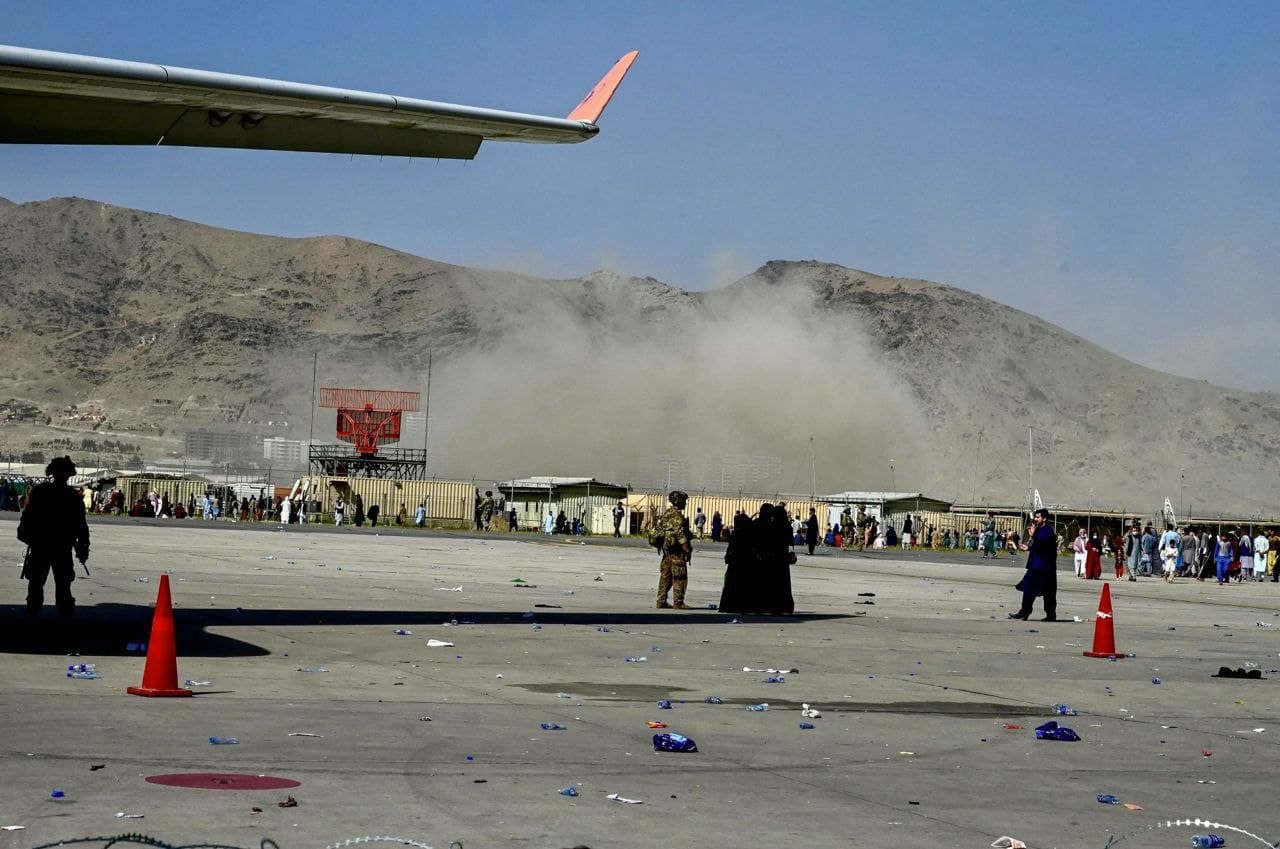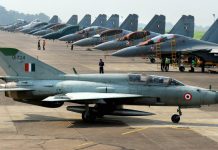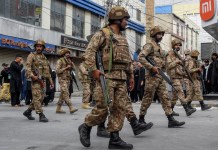Terrorist group Islamic State Khorasan (ISIS-K) has claimed responsibility for the March 4 bomb blast in the Pakistani city of Peshawar that killed 57 people and left 194 injured.
The latest terror attack, one of the deadliest explosions in the South Asian country, was reported on the same day when the Paris-based Financial Action Task Force (FATF) retained Pakistan on its terrorism financing “grey list” and asked the Imran Khan government to plug the remaining loopholes in its financial system.
It also comes at a time when the Australian cricket team is on a tour of the country even as authorities say Test matches will continue as per schedule.
Pakistan is currently battling a new wave of terrorist and sectarian violence, which some analysts link with the return of the Taliban regime in Afghanistan.
A suicide bomber detonated himself inside a Shiite mosque in the Qissa Khwani Bazaar in Peshawar on March 4. At least 57 people were killed and 194 injured in the latest suicide bombing, said Mohammad Asim, a spokesperson for Lady Reading Hospital (LRH), confirmed the casualties, adding that some of the injured were in critical condition.
The Islamic State’s regional affiliate in South Asia, ISIS-K, owned up the terror attack, according to a translation of an ISIS statement by the SITE Intelligence Group. The statement said that the bombing was carried out by an Afghan suicide bomber.
This comes just two days after a blast in Quetta that killed at least three people and injured 25 others

CCTV footage that came out after the attack showed a lone attacker clad in a black shalwar kameez reaching the mosque on foot. He then opened fire on police personnel outside the main entrance before running inside. The attacker also opened fire on a man who tried to stop him and managed to enter the mosque, where worshippers had gathered for Friday prayers, following which an explosion took place.
Moazzam Jah Ansari, the Inspector General of Police for Khyber Pakhtunkhwa, told the media that out of the two police personnel stationed at the mosque for security, one was killed and another was in a critical condition.
He said that around five to six kilograms of explosive material were used, adding that there was no prior intelligence on the attack.
ISIS-K — Notorious For Suicide Bombings
The Sunni majority Pakistan has had a long history of sectarian violence against the minority Shia population by various Sunni Islamist militants such as Lashkar-e-Janghvi (LeJ) and Sipah-e Sahaba Pakistan (SSP) and now ISIS-K is exploiting the same sectarian fault lines.
Founded in 2015, ISIS-K’s aim is to bring Central Asia and South Asia under the banner of what it refers to as ‘Khorasan province’. Over the years, the group had been involved in several terror attacks and other subversive activities in the region — Afghanistan, Pakistan, Tajikistan, Kazakhstan, Sri Lanka, the Maldives, Bangladesh.

ISIS-K comprises fighters who defected from the Afghan Taliban, Al Qaeda, and Tehreek-i-Taliban (TTP) and the group’s aim is to dislodge the ruling Taliban government in Afghanistan and the Pakistani government.
The last major attack by the ISIS-K was the suicide bombing at the Kabul Airport in August last year that claimed the lives of about 170 people including 13 U.S. service members.
The March 4 incident is the latest in the series of attacks that have wreaked havoc across Pakistan since the beginning of this year.
Resurgence Of Tehreek-i-Taliban Pakistan
Following the takeover of Afghanistan by the Taliban, the situation inside Pakistan has rapidly changed. The country has become a hotbed of terrorist activities by multiple groups acting either in coordination with or independently of each other.
Apart from ISIS-K, Pakistani security forces have also been battling the resurgence of Tehreek-i-Taliban Pakistan (TTP), commonly referred to as the “Pakistani Taliban”, a Pashtun Islamist militant group based along the Afghan–Pakistan border that is supposedly emboldened by the return of the Taliban regime in Kabul.
Despite some cross-border tribal links, TTP and its namesake — the Afghan Taliban — claim to be separate and independent of each other with different organizational structures and objectives.
TTP’s stated aim is to overthrow the government of Pakistan and set up a theocratic regime in the country, similar to the Islamic Emirate of Afghanistan (IEA), established by the Afghan Taliban. Therefore, following the fall of Kabul to the Afghan Taliban, Noor Wali Mehsud, the leader of TTP pledged an oath of allegiance to Haibatullah Akhundzada, the supreme leader of IEA.

However, the Afghan Taliban have always rejected any affiliation with TTP. “They (TTP) are not, as an organization, part of IEA and we don’t share the same objectives,” Zabibullah Mujahid, the Afghan Taliban government spokesman told Arab News in September last year.
“We advise TTP to focus on peace and stability in their country. This is very important so they can prevent any chance for enemies to interfere in the region and in Pakistan. And we request Pakistan to look into their demands for the better of the region and Pakistan.”, Zabibullah further added.
The Afghan Taliban also brokered a month-long truce between the TTP and Pakistan, which gave Islamabad a brief respite but the talks failed and the terror group resumed attacks, declaring an end of ceasefire in early December of last year.
However, security analysts believe that there are strong links between TTP and the Afghan Taliban. Abdul Basit, a Pakistani expert whose research focusses on jihadist militancy and extremism in Afghanistan and Pakistan, has pointed out recently in his article that the Afghan Taliban-TTP relationship is longstanding, and cuts across ideological and ethnic linkages and “there is tremendous reverence and sympathy for the TTP in the Afghan Taliban rank-and-file”
Similarly, Pakistani Army Chief General Qamar Javed Bajwa had said last year that the Taliban and the TTP are “two faces of the same coin.”
Meanwhile, Paris-based anti-terror financing watchdog FATF retained Pakistan on its terrorism financing. It also included UAE in the list of countries “subject to greater oversight for shortcomings in tackling illicit finance, potentially complicating local operations for Wall Street banks and multinationals that use Dubai as their Middle Eastern hub,” according to Bloomberg.
Although the UAE “has made progress” in strengthening anti-money laundering steps, the Gulf country needs to implement an “action plan” to demonstrate “a sustained increase in effective investigations and prosecutions of different types of money laundering cases consistent with UAE’s risk profile”, FATF noted.
With regards to Pakistan, the global watchdog asked the country to strengthen its anti-money laundering/combating the financing of terrorism (AML/CFT) regime and to address its strategic counter-terrorist financing-related deficiencies, DAWN reported.
- Written by Tanmay Kadam/EurAsian Times Desk
- Mail ET Desk at: etdesk@eurasiantimes.com
- Follow EurAsian Times on Google News




